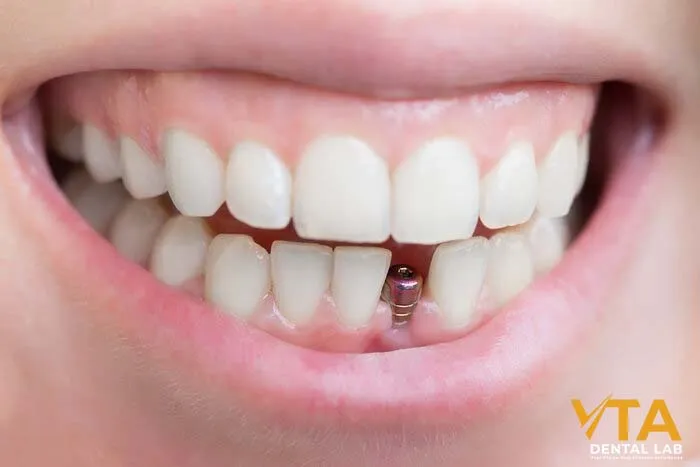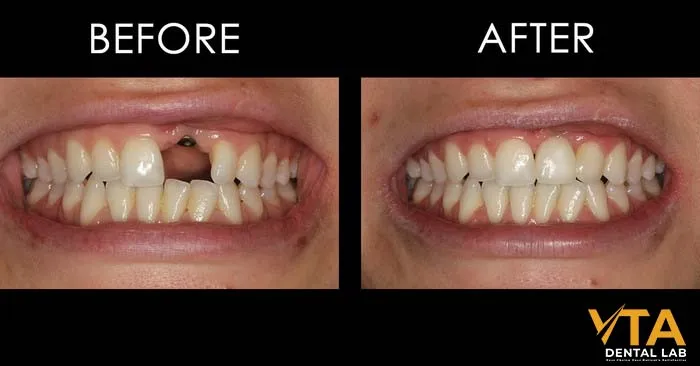Post-Dental Implant Care Instructions: A Comprehensive Guide
Once getting a dental, post-dental implant care instructions are crucial for ensuring a smooth recovery and good bone integration of the implant. In this comprehensive guide, we will guide you through the steps of dental implant post-operative care to achieve the best results.
Immediate Post-Operative Care
Managing Bleeding
It is normal to experience some bleeding immediately after the dental implant procedure. To control bleeding, bite down gently on a gauze pad placed over the surgical site. Change the gauze as needed, but avoid excessive pressure. If bleeding persists after several hours or becomes heavy, contact your dentist for further guidance.
Reducing Swelling
Swelling around the implant site is also a common side effect. To minimize this, apply a cold compress or ice pack to your face near the surgical site. Do this for 15-20 minutes during the first 48 hours. This will help reduce swelling and discomfort.

Pain management
Pain after surgery is usually mild to moderate. Take prescription pain medication or over-the-counter pain. It is often beneficial to take medication after eating to help prevent nausea. Do not drive while using narcotic pain relievers.
Diet Recommendations
The first 24 hours
For the first 24 hours after getting a dental implant procedure, the patient should eat soft foods. Avoid chewing on the implant side and stick to foods like smoothies, mashed potatoes, yogurt, soups, and other foods that are easy to chew. Make sure the food is not too hot as this can irritate the surgical area
Long-Term Eating Habit
As the recovery progresses, the patient can begin eating solid foods again. However, during the recovery, avoid hard, chewy, or sticky foods (such as nuts, hard candy, or caramel). These foods can put undue stress on the implant and slow down the healing process.
Oral Hygiene Tips
Cleaning Around the Implant
Keeping the implant area clean is important to prevent infection. Brush teeth with a soft-bristled toothbrush, but be gentle around the implant site. For the first few days, avoid brushing directly on the implant area to allow the surgical site to heal. After the initial healing period, continue to brush the area carefully to avoid plaque.

Using Mouthwash
Using an antibacterial mouthwash helps reduce bacteria around the implant and promotes healing, reducing the risk of infection. Be sure to use the appropriate mouthwash as directed by the doctor. Void using alcohol mouthwash in the first healing period because it can make the sensitive issues become irritated.
Flossing and Special Tools
After the first few days, the patient can begin flossing around the implant, but be gentle. Special tools like water flossers or specialized implant brushes can help clean the area thoroughly without causing damage.
Lifestyle Adjustments
Avoid smoking and Drinking Alcohol
Smoking and drinking alcohol can seriously affect the recovery process. Smoking reduces blood flow and oxygen to the mouth, slowing healing and increasing the risk of complications. Alcohol can irritate healing tissue and interact negatively with medications. For best results, avoid these habits, especially during the early stages of recovery.

Physical Activity
Rest is essential for the first few days following surgery. Avoid strenuous physical activities, including heavy lifting, exercising, or anything that could cause undue stress in the body. Gradually return to normal activities as you feel comfortable.
Signs of Potential Issues
While most patients experience mild swelling and discomfort, there are a few signs that could indicate complications. Be on the lookout for:
- Excessive bleeding or swelling that doesn’t improve after a few days.
- Severe pain that doesn’t subside with prescribed medication.
- A bad taste in your mouth or foul odor could indicate infection.
- A fever or chills may signal an infection.

Long-term Care of Post-Dental Implant Care Instructions
Regular Dental Checkups
Even after the implants have healed, regular checkups are necessary to ensure that they are integrating well with the bone and maintaining oral health. Visit the dentist at least every 6 months for a thorough cleaning and to check the condition of the implant.
Maintain Good Oral Hygiene
Good oral hygiene is important to prolong the life of the implant. Brush the teeth twice a day and floss daily to prevent plaque. If the patient experiences receding gums or loose implants, contact the dentist immediately.
In Conclusion
Adhering to post-dental implant care instructions is crucial to achieving the best outcomes from the procedure. Proper care and attention during the recovery process can help prevent complications and promote the long-term success of the implant. If you have any questions or concerns, your dentist is the best resource for guidance and support.
Additionally, if you are looking for a dental laboratory in the U.S. that provides high-quality implant products and services, contact VTA Dental Lab. Our team of experts is always ready to deliver the best dental solutions tailored to meet the needs of your patients.
Frequently Asked Questions (FAQ)
How long does it take for a dental implant to heal?
The healing process for dental implants typically takes 3 to 6 months. The implant must integrate with the bone before a crown or prosthetic can be placed.
Can I brush my teeth after getting a dental implant?
Yes, but avoid brushing directly on the implant site during the first few days. Be gentle around the area, and use a soft-bristled toothbrush.
What foods should I avoid after a dental implant?
Avoid hard, crunchy, or sticky foods that may stress the implant or cause injury to the surgical site. Stick to soft, easy-to-chew foods during the first few weeks.